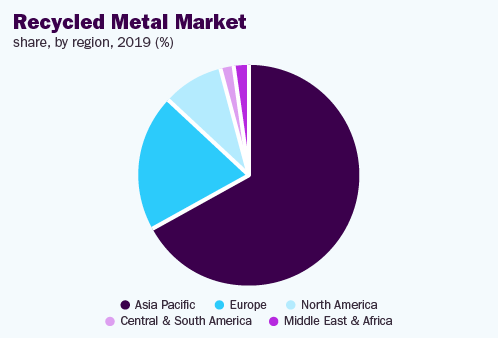What is Machinery, Parts and Metal Goods Industry?
The machinery and metal goods industry is a type of industry that deals with the production of various tools and goods using different metals. The product range of the metal goods industry is quite wide, because it is necessary to use different metal tools and equipment in many different sectors and business areas. Many tools made with iron and steel raw materials are used in textile, electronics, furniture and many other production areas. Areas such as the construction industry, infrastructure materials and car production are also closely related to the metal goods industry. Some household products such as refrigerators, air conditioners and aluminum windows can be given as examples of the products of this industry. In the production stages of these goods, products from the metal goods industry are used. The machinery and metal goods industry is very important for many industries to continue to operate in a functional way. In addition to industries, societies and individuals also need the products of this industry. In short, the machinery and metal goods industry has a very essential position today.
What is Sustainability?
Sustainable life is the use of existing natural resources in a way that allows future generations to benefit from the same resources. Today, societies need many resources in order to carry out activities related to life and development. But life and development activities are not specific to a certain period or group of people. Humanity, including future generations, always needs these activities in order to exist and progress. Another meaning of the term, in the words of the United Nations, is “meeting our needs while not limiting the ability of future generations to meet their own needs”. Following sustainable methods does not mean a decrease in the quality of life. On the contrary, it aims to keep the quality of life of all generations at the highest level. While doing this, it does not disturb the integrity and order of the environment and natural balances. Sustainability is not just a concept focused on the future of humanity. The protection of the earth, the living creatures on earth and all the resources offered by the planet is also within the scope of sustainability. In sustainable understanding, natural resources are evaluated as limited. It also argues that various industries should not adopt an unconscious attitude while using these resources. It predicts that societies can develop without harming the environment and nature. If humanity continues to consume much more resources than it needs, the future of humanity and the world may be endangered. At this point, the reusability of resources comes into play. Sustainability proposes ‘sustainable’ methods to exist and develop that are applicable both today and in the future.
Why Are Sustainable Production Methods Important?
Products that have gone through different production processes are used in all areas of life. It is not possible to meet the needs without production in homes, workplaces and social life. If unsustainable methods continue to be followed in production processes, the natural systems of the world may be damaged. The effects of these damages can cause negative changes in the ecosystem in the short and long term. Sustainability is of great importance in terms of completely eliminating or minimizing the side effects. If sustainable production methods are not applied, the increase in air pollution, water pollution and soil pollution is inevitable. Endangered species may increase due to the increase in pollution. Many living species may even disappear completely. Climate change is also associated with unsustainable production methods. Reversing climate change, which is the cause and result of these methods, is possible thanks to sustainability. This concept can be evaluated in three different categories as seen below:
Environmental Sustainability: It is the use of natural resources in the world in a way that will not harm living things and ecosystems and can be transferred to future generations.
Social Sustainability: It is the part of sustainability that concerns human life. It is related to concepts such as human rights, justice and equality.
Economic Sustainability: It is the taking of economic actions in accordance with environmental and social sustainability.
The Role of Sustainability in the Machinery and Metal Industry
The machinery and metal industry is open to the use of sustainable methods. Because, as the name suggests, the most important element of this industry is metal. Substances such as iron and steel, aluminum, copper and magnesium are used in the metal industry. The reason for the widespread use of these materials is that they are durable, easily shaped and light. At the same time, metals are completely recyclable materials. For example, steel can be recycled many times without compromising the quality of the product to be created. In the metal industry, steel products that have been used for different purposes before and other tools can be produced. In fact, steel is the most recycled metal. In addition to steel, aluminum, iron and copper, which are frequently used materials in this industry, are also 100% recyclable. The recyclability of raw materials used in the metal industry contributes to sustainability. Because, thanks to recycling, existing products are re-manufactured for reuse. Thus, natural resources are not consumed. Metal resources are found in nature in limited quantities. Constantly resorting to these resources for production purposes limits the access of future generations to the same resources. The recyclability of the materials used in the metal industry increases the role and importance of sustainability in this field. In addition to environmental sustainability, social and economic sustainability is of great importance in the metal industry. Metal parts industry creates wide working areas. Employees can be provided with equal opportunities and safe working environments in accordance with social sustainability. In addition, economic activities to be carried out in this industry can be carried out by considering environmental factors.
Sustainability Practices of Manufacturers in The World
Many manufacturers around the world work in the field of sustainability. For example, “Otis Elevator Company”, which has an important place in the elevator and escalator industry, has reduced its energy consumption by 75% by using a new technology in its production. At the same time, with this technology, it has provided serious reductions in CO2 emissions in production. Another example is the Google company. Google has been working and implementing in the field of sustainability for years. The company chooses most of the electronic materials it uses from recycled materials. Since 2007, it has obtained more than 300,000 electronic materials from its out-of-date servers.
The size of the recycled metals market in 2019 is approximately 922.0 million. Between 2020 and 2025, a compound annual growth of 5.5% is predicted. Figure 1 shows the geographical distribution of the global data of the recycled metal market in 2019.

Asia Pacific countries are in the leading position of the market share with a value of approximately 67%. The market leader in this region’s recycled metal production and use has been China. In Figure 2., future projections of the figures in China’s recycled metal market are made. According to estimates, China is expected to dominate the region in the near future. In addition, in the figure, the metal alloys used by China in this market are given in more detail and future predictions are made.

The Future of Sustainability in the Machinery, Parts and Metal Industry
Machinery and metal industry is an industry type that allows to follow methods suitable for all areas of sustainability. At this point, a big role falls on the facilities that produce in the metal industry. The metal industry sector as a whole can take the necessary steps for a sustainable future. Metal industry products can be produced without wasting available resources. One of the factors determining the future of sustainability in this industry is the importance given to social sustainability. It is necessary to provide safe, healthy and equal working opportunities to individuals working in the metal industry. Because although the social part of sustainability is not as prominent as the environmental part, it is equally important. For the future of sustainability in the metal industry sector, each category should be evaluated as a whole. Thus, natural resources and an egalitarian working approach can be left to future generations to be used in the same sector.
SITM for Sustainability-Oriented Machinery, Components and Metal Industry Products
SITM is an internationally serving iron-steel and machinery parts export company. Among the iron and steel products that SITM exports, there are seamless pipes, welded pipes and tanks. A variety of machines can be accessed via the SITM, including the burner, compressor, boiler, refrigeration machine, heat exchanger, and reactor. SITM products are technologically easy to use and high quality product options. SITM is a company that understands the place and importance of sustainability in the machinery and metal industry. To purchase iron and steel products, you can contact SITM, a company that works with a sustainable production approach. For more detailed information about our products or for your questions, you can use our contact information on our website.

